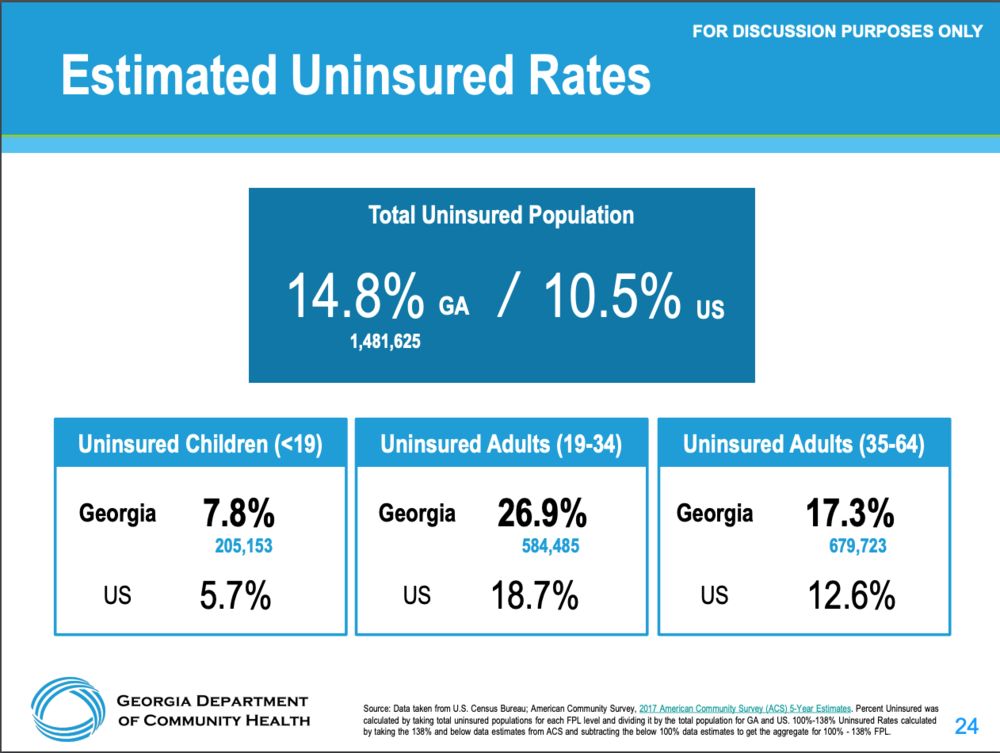Section Branding
Header Content
State Releases New Survey Of Georgia's Health Care Landscape
Primary Content
A newly-released survey detailing Georgia's health care landscape is the latest step in Gov. Brian Kemp's plan to expand access to some of the estimated 1.5 million residents who don't have health insurance.
The Georgia Environment Scan Report combines demographic, business, employment and health-related data to help inform consultants hired under the Patients First Act craft potential waivers to the state's Medicaid and Affordable Care Act plans.
In 2017, the estimated 1.5 million Georgians that did not have health insurance coverage represented 14.8% of the state's population. But the waiver process will only look at Georgians without coverage that are below 100% of the federal poverty level, or around 478,000 people.
RELATED: What The Patients First Act Means For The Future Of Georgia Healthcare
Democratic lawmakers have pushed the state to expand Medicaid to cover those up to 138% of the federal poverty level, which includes another 189,000 Georgians, but the governor and his staff have been clear that is off the table.
Other takeaways from the Georgia survey: 34% of the state's Hispanic population does not have health insurance, 60% of those without insurance over the age of 16 are currently employed and over a third of the state's adult uninsured population live in five metro Atlanta counties.
Kemp signed the Patients First Act earlier this year, and said that his goal was to have consultants craft a Georgia-centric approach to health care that makes insurance more affordable and accessbile, plus improve the quality of care delivered.
MORE: It's Not Your Imagination. Healthcare Prices Are Higher In Georgia.
Ryan Loke, the governor's health policy representative working on the waivers, said that implementing the processes of the Patients First Act is the main priority, but the wide amount of data that is now in one place can serve as a jumping-off point for future policies that strengthen Georgians' access to health care.
"What do we use the data for? That's open-ended," he said."I think we're going to learn a lot throughout this process of what other challenges we have that can't be addressed through a waiver, and that'll be the next step."
Also published is a national scan that looks at different 1115 and 1332 waviers submitted by other states, national health care trends and federal guidance on submitting these waivers.
Consulting firm Deloitte is heading up the project along with the governor's office and the state Department of Community Health, and will be advised by a 50-person group of lawmakers, hospital representatives and other health-focused stakeholders.
The next step in the project will look at developing several customized options for the two waivers that will then be presented to Kemp by the end of this year.


